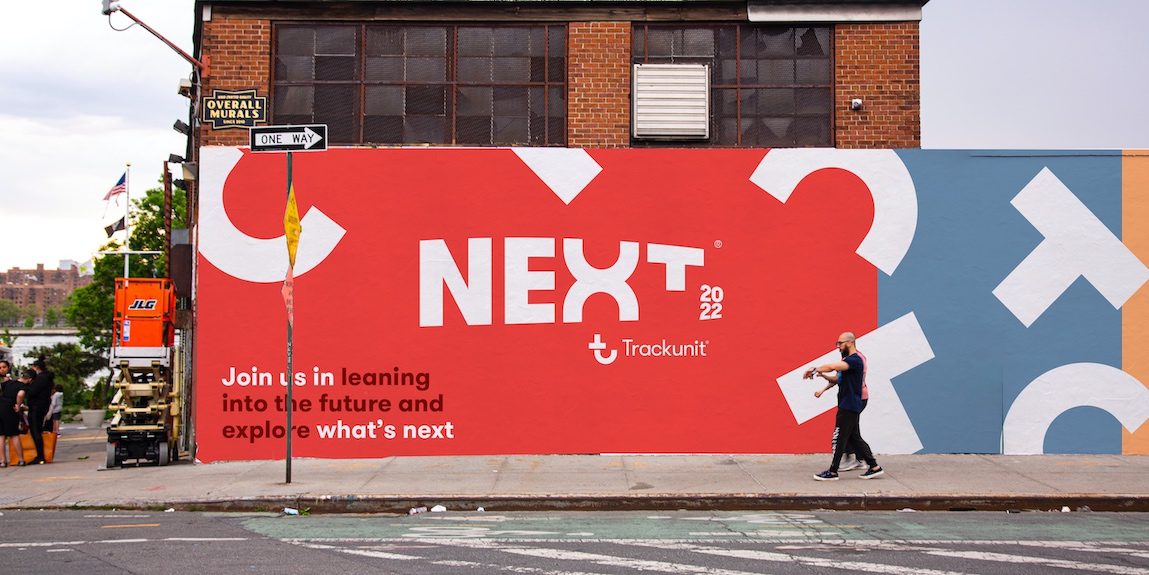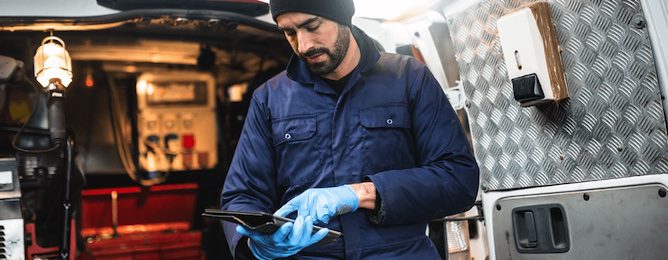

Our number one KPI is Customer Health. This metric helps us understand our product adoption, helping us focus on supporting customers to digitalize their operations and gain a strong return on their investment. Realizing customers’ value, and unlocking critical workflows through digitalization, is demonstrated by the growth in the total number of weekly active users of Trackunit Manager and Trackunit Go. Furthermore, increases in the volume of users within each customer illustrate greater penetration and data use across the customer organization.
It’s significant that connectivity of equipment is a growing feature. This is especially prevalent in larger and higher-end machines, where very few leave the factory gate without the capacity to be connected. However, the further down the equipment pyramid you travel, the rarer that facility becomes. Clearly, to really accelerate IoT efficiencies and benefits, the industry needs a more connected worksite in which all equipment is visible.
In our consumer lives, we have adjusted to the convenience of connectivity. Therefore, all environments where we don’t have everything at our fingertips essentially jar with our otherwise everyday experiences. The transition to this in construction will not be simply about the provision of machine data but will require a view that draws from the wider connected network. It won’t be an easy journey to arrive at that point.

Trackunit agrees with the recent IDC survey that indicated that we’re all investing heavily in IT. Through this investment, we are beginning to see more advanced use of data and telematics in construction. However, there are still challenges. As we look at waves of industrial development, the connecting of core equipment in order to gain operational efficiencies is already in full swing.
Moreover, data collection is only the first step towards the industry’s ability to innovate new products and solutions. However, there is a sharp drop in the number of companies investing, and an even greater proportion is unable to operationalize their investments.
At Trackunit, we see how progressive rental companies are accelerating the digitalization of their business models and in their attitude towards innovation.
In these respects, they are pushing the OEMs at one end, whilst pulling customers along from the other.
Rental companies will therefore provide a vital motivational force to help construction live up to its billing and achieve the fastest growth in spending on digital transformation 2020 – 2025. Meanwhile, at Trackunit we’re continuously involved in helping our customers to operationalize the intent behind their investments.
However, it’s hard to realize outcome-based services. We’ve taken a step back to look at why this is so. The answer is of course complex and requires the industry to address five challenges – People, Platform, Connecting the entire job site, Customer Experience, and Sustainability. Since each of these headings is a topic in its own right, stay tuned to this blog for more information.
What to expect from Trackunit. Sustainability is high on the agenda.
Every piece of research, every survey stresses the need for greater sustainability. For instance, 88% of respondents to a recent poll said ‘they want to make a positive impact on the social and environmental issues that are facing our world’.
92% of S&P 500 companies are now reporting on sustainability.
For many of us, at home and at work, the way we align with brands had become heavily influenced by environmental constraints such as the carbon footprint of the products and services we choose.
Every day our customers are investigating new ways to meet their ESG goals, and delivering insights on CO2 emissions and various use data for machinery across fleets is essential. Emissions and sustainability goals can only be achieved through data acquisition, and you cannot measure what you don’t record. Many of our customers realize that their ESG priorities are becoming the ‘license to operate’ and we are working with them to implement the processes and systems to meet their requirements.
Today we’re collecting data from around a million data points. And working with our OEM partners, not only are we integrating more and more ISO feeds, we’re acquiring better quality data which is also more harmonized. Coincidentally, we’re also helping our OEM partners to get more value out of the data inside Trackunit Manager.
We’re also extending our OEM network – you may have seen the recent announcement with Hilti – meeting the requests of systems integrators to interact with data from third-party systems. We have a firm belief that no customer should feel locked into the Trackunit platform and that, observing all the requirements for security, data should be free to travel between platforms.

Finally, the safety of those working on construction job sites is a constant theme, and I want to mention the success of IPAF’s digitalization scheme for operator training and authorization.
The ePAL digital card was the result of a collaboration between Trackunit and IPAF.
To date, over 110,000 digital identity cards in around 52 countries have been downloaded.
This means that operators have up-to-date authentication, down to the machine level, ensuring qualified employees are operating machines on-site, which will increase site safety.
I’m very proud of Trackunit being invested in this program. But as inspirational as this work by IPAF is, we must broaden this technology across the market, to support and extend the use of operator licenses and increase safety. I’m looking forward to equipment OEMs embracing the system and the standard, to help propel this ground-up approach to operator safety to even greater success.
In case you missed Trackunit Next 2022 you can watch all sessions on-demand here.
Ne manquez plus aucune information. Nous vous enverrons un e-mail lorsque de nouveaux articles seront publiés sur ce sujet.